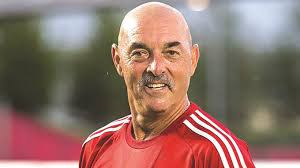
THERE is always a huge amount of debate about which soccer team is the best in the English Premier League — Arsenal, Chelsea, Liverpool, Manchester City, Manchester United, Tottenham Hotspur…? Note that the foregoing list is simply in alphabetical order and not in order of significance. Often the debate has nothing to do with facts, only with sentiment or prejudice. And even when facts are thrown into the mix, they are usually selective and simplistic.
School of sport with TIM MIDDLETON
How do we determine which is the best team? The obvious answer will be to say it is the team that wins the league. The supporters of teams that did not win the league may rush to argue that it is not just about winning the league, but about winning the league regularly, consistently (even though the players are different, season to season) — the mark of the best team, they will claim, is the one that performs at the top, season in, season out.
If it is as obvious as that, and supported by statistics, why then do we become inundated with all the other statistics, if they are not relevant? Is the best team not the one who has most possession, but that may just have been unlucky in front of goal? How often do you hear managers claim that their team was the better team, even though they may have drawn or lost? Might it not be the team that has most passes, or rather the highest completed pass rate? Such a view though does not take into consideration that any team can increase the number of completed passes by simply making short, safe and easy passes, sideways or backwards, instead of adventurous long balls. Others will dismiss their opponents and claim that their own team played the more attractive, entertaining football so were the better team — anyone can defend in numbers and hope for a breakaway goal.
Perhaps it would be fairer to determine the best team by dividing the number of points gained into the amount of money spent on players? Or how about dividing the number of points gained into the number of bookings and red cards the players have received (are they the best team by playing “dirty”?) — or divide the number of points gained into the number of weeks out injured the players in that team have had to endure? These are surely all relevant factors?
However, it is worth interrupting the raging debate by humbly suggesting at this point that such debaters have not listened to the question; which was: which is the best team, not the best group of individuals? That might suggest it is the group who receive the least number of bookings, or the group that is the most sporting, or the most united or the most principled.
Do they play as a team or a bunch of individuals? Most fanatical supporters would, of course, argue that it does not matter how you get there, you just have to be there, at the top, at the end of the season.
It may be a similar exercise if we were to consider a similar question: Who is the best goalkeeper? Is the best goalkeeper the one who plays for the team that wins the league? Not necessarily — they may have let in far more goals than other teams but also have scored far more goals, due to more successful strikers. Is the best goalkeeper then the goalkeeper of the team that concedes the fewest goals? Not necessarily! That team may just have an excellent defensive formation or players, meaning the goalkeeper does not have to make many saves.
- Chamisa under fire over US$120K donation
- Mavhunga puts DeMbare into Chibuku quarterfinals
- Pension funds bet on Cabora Bassa oilfields
- Councils defy govt fire tender directive
Keep Reading
So, is the best goalkeeper the one who makes the most saves? Not necessarily! One goalkeeper might have had to make far more saves than others due to a weaker defence. So, is the best goalkeeper the one who has the best save percentage to shots? Not necessarily!
One goalkeeper might have lots of easy, soft saves to make while another might have faced many more deflections or penalties or shots from inside the six-yard box. Other contributing factors may relate to the fact that one goalkeeper’s opponents week in, week out, have played well above their normal performance; others might have played in far worse conditions or the team has had significant injuries against stronger opposition.
What does all this show? At school level we should not be concerned about which is the best team or best player, not least when the playing fields are not level and where there are no leagues anyway. Schools love to promote themselves as having the best team in the different sports, but being the best is not important. They just need to be the best team they can be.
Tim Middleton is a former international hockey player and headmaster, currently serving as the executive director of the Association of Trust Schools. Email: ceo@atschisz.co.zw










